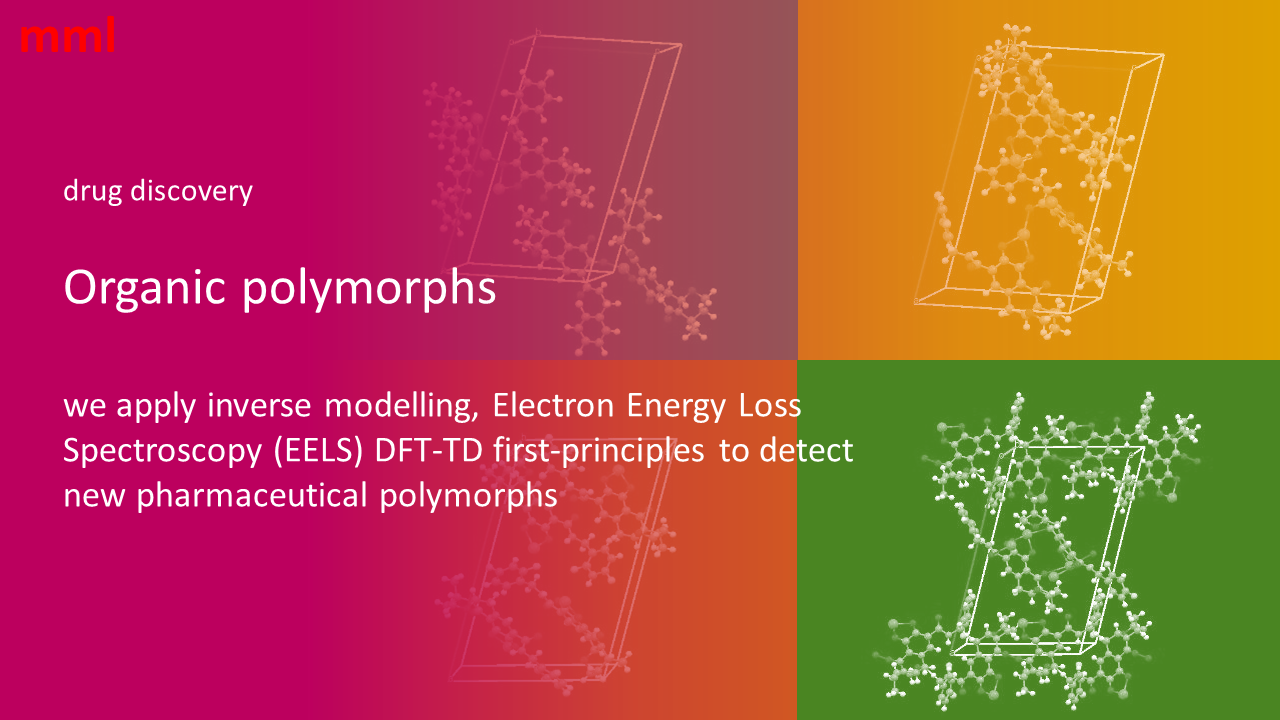The challenge
In the pharmaceutical industry, polymorphism (crystallization of the same formula unit in different crystal systems) occurs unavoidably during the drug discovery, development and manufacturing processes; determination of the exact polymorphic structure (polymorph screening) is, as a result, extremely important because it affects drug solubility, dissolution, bioavailability, and stability but also IP protection. Polymorph screening may be carried out by various methods but primarily relies on a Monte Carlo search of potential polymorphs, constrained by X-ray powder diffraction (XRPD) and theoretical energetic ranking of candidate structures. Even so, exact polymorph solutions are not systematically possible, particularly for unit cell sizes of industrial interest (of the order of 150-200 atoms).
Our research
In order to address polymorphic screening from the ground up, we have developed a prototype High Performance Computing (HPC) algorithm aimed at the exhaustive search of conformational space, intended to systematically pinpoint the optimal crystal structure corresponding to diffraction data. The algorithm is massively-parallel, running on thousands of computing cores, and uses the crystal’s unit cell dimensions as well as space group symmetry obtained via Transmission Electron Microscopy (TEM) and other signal constraints such as Electron Energy Loss Spectroscopy (EELS) and Cathodoluminescence data. The algorithm can be used in conjunction with dispersion-corrected Density Functional Theory (DFT) energy ranking.

